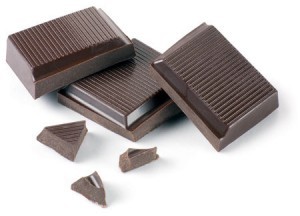 A meta-analysis of ten clinical trials has revealed that the consumption of dark chocolate and cocoa products, both of which are rich in polyphenol, may reduce total cholesterol and LDL cholesterol. However, consumption of these products has no effect on HDL cholesterol.
A meta-analysis of ten clinical trials has revealed that the consumption of dark chocolate and cocoa products, both of which are rich in polyphenol, may reduce total cholesterol and LDL cholesterol. However, consumption of these products has no effect on HDL cholesterol.
The collaborative effort between Brigham and Women’s Hospital and Harvard Medical School revealed that short-term consumption of dark chocolate was associated with reduced total cholesterol by 6.23 milligrams per dl; LDL was reduced by 5.9ml/dl on average.
“The degree to which LDL and [total cholesterol] levels were reduced in this analysis reflects some measure of potency of the coca regimen,” said the researchers. The findings were published in the 2011 edition of the European Journal of Clinical Medicine.
The research team also stated that their analysis showed the cholesterol-lowering effect to be greater when induced by the consumption of cocoa polyphenols from dark chocolate rather than from cocoa beverages. The team was led by Luc Djoussé, MD, DSc.
Studies of the polyphenols found in cocoa have been painting a healthier picture, with reports indicating possible benefits for skin health, cardiovascular health, and brain health. The media has been reporting more and more on the benefits of cocoa products.
Most of the research into the healthful properties of cocoa has been concerned with the cardiovascular benefits of flavanols, also known as flavan-3-ols or catechins. The monomeric flavanol (-)epicatechin, in particular, has received much research attention.
Researchers from the University of Reading in England, along with candy manufacturer Mars, have reported that cocoa may have an effect on the bacteria in the human gut, giving it potential as a prebiotic.
The purpose of the meta-analysis of ten clinical trials was to determine the effects of dark chocolate and other cocoa products on blood lipid levels. According to the researchers, since dark chocolate is formulated with saturated fat and contains additional calories, it may have unwanted effects on cholesterol levels.
The research team headed by Dr. Djoussé searched the medical literature from 1966 to 2010 and found ten clinical trials of dark chocolate and cocoa products, both rich in flavanols, evaluating 320 participants in all. Half the studies gave participants less than 500mg of flavanols every day, the other studies gave participants over 500mg daily. The duration of the trials was from 2 to 12 weeks.
The team performed an analysis of the numbers offered by the studies and found that consumption of dark chocolate and cocoa products was associated with significant reductions in levels of LDL and total cholesterol.
However, the numbers revealed no changes in HDL cholesterol or triglyceride levels.
“These current analyses are consistent with beneficial effects of dark chocolate/cocoa product consumption on LDL and neutral effects on triglyceride and HDL in a short-term intervention,” said the team of its findings.
According to Dr. Djoussé’s team, the likely mechanism for the reduction in cholesterol levels involves the flavanoids found in the dark chocolate and cocoa products.
“Flavan-3-ols in cocoa are present as monomers, oligomers or polymers, better known as procyanidins, and generally are thought to inhibit cholesterol absorption as well as the expression of LDL cholesterol receptors,” the researchers stated.
The researchers further stated that additional studies would be needed to evaluate the optimal dose of cocoa consumption and any possible long-term effects that frequent consumption of dark chocolate might have on cholesterol levels.